In late 2019, EDF’s Head of Diversity and Inclusion was looking for an innovative way to bring their Everyone’s Welcome vision to life and tackle a common issue that many organisations face with recruitment of people from ethnic minorities. They also received feedback in their annual employee engagement survey that their colleagues with disabilities, their LGBTQ+ people and those who are carers for others, didn’t feel as fully included or considered.
EDF designed and facilitated a workshop to explore the problems and assess what solutions it could offer. It wanted to learn from a diverse range of thoughts, opinions and roles and invited a broad range of employees, including members of its disability and carers network, other employee networks, individuals from all levels of the organisation, HR and Occupational Health.
During these discussions two prominent phrases were mentioned time and again:
This led to the idea of using technology to provide that embodiment experience for the user.
We created a VR experience as part of a wider initiative that led to:
As an organisation, EDF recognised that its recruitment of diverse individuals wasn’t where it wanted it to be.. So, it was key that this be a focus of the experience. EDF also wanted to incorporate the experiences of working parents within the workforce.
EDF wanted senior leaders to be the initial audience for this experience. It should:
EDF identified virtual reality as an ideal means of conveying this experience by transporting the learner into another person’s virtual body to get them to ’live’ that person’s experience. On investigating the technology, EDF found research showing that VR can create emotional connection for the user, and deliver much greater impact than e-learning, or face-to-face training.
Initially EDF turned to off-the-shelf Diversity and Inclusion VR content. While much of it was good, it didn’t cover its specific objectives or the uniqueness of the challenges it faced as an organisation.
The solution was to invite external companies with VR expertise to respond to a brief for developing a bespoke experience.
In October 2020, EDF invited us at Make Real to work on creating a VR proof of concept to show the power of VR in addressing issues of diversity and inclusion. The aim was to create the experience within six months to showcase to EDF’s Chief People Officer and her leadership team.
The COVID pandemic created further challenges, leading to all aspects of production taking place remotely. Despite the difficulties, EDF was keen to make sure that the solution wasn’t limited to just a small project group – rather, a wider group of multiple individuals would feed into the final release.
EDF’s project team and Make Real worked in collaboration with EDF’s employee network for Race and Cultural Equality (RACE) as well as HR business representatives from each operational business. The solution was driven by the power and raw honesty of those design sessions, in which people shared recent personal experiences.
One thing that these sessions highlighted is that overt racism and poor behaviour were easy to spot, but microaggressions, things that could be dismissed as banter, were the most endemic and painful experiences. These were ultimately what made people feel left out or unwelcome.
“Make Real really brought this (experience) to
life through their design process and scripting.”
The experience was developed for the Meta (formerly Oculus) Quest and Quest 2 headsets.
It was important to EDF that the environment felt real and recognisable to the target audience, so we were careful to research and model office and break room environments that looked and felt like real EDF locations.
The experience is about how different two perspectives of the same conversation can be and how we all tend to make snap observations based on the often limited information that we have.
It uses embodiment to allow the learner to see events through the eyes of Tony, a senior leader who is transitioning to an independent consultant role after a rewarding career at EDF, and who is clearly representative of the majority demographic within EDF at the time.
The experience begins with the learner looking at their laptop with a view of Tony captured by a webcam. The learner is told they are going to see things from Tony’s perspective and has an opportunity to see how they are controlling Tony with their hand and head movements. This then leads into Tony having a conversation with two people he’s considering to take over his role.
One is Martin, 35, who is very similar to Tony, working his way up from his first job in EDF as a school leaver. He shares Tony’s strong work ethic and prides himself on building an extensive network, both in the workplace and at staff socials.
The other is Rashid, 28, who joined EDF on a fast-track graduate scheme. Because his daughter has health issues and requires extra care, Rashid is careful to balance his work and home life. He works a four day week and rarely takes part in work socials, as these often revolve around alcohol and late nights.
The conversation takes place in the break room, and sees the three characters discussing Tony’s forthcoming departure and who will be his replacement. The learner can make choices at key points to steer the conversation. Afterwards, the learner has to choose words they most associate with Martin and Rashid, showing the quick judgements made in the conversation.
The learner now experiences a perspective switch, repeating the embodiment exercise, but this time through Rashid’s eyes. They then relive the entire conversation from Rashid’s point of view and hearing Rashid’s thoughts as the chat progresses. In this part of the conversation, the learner can start to see how Rashid is isolated by the prevalent work culture and how seemingly innocent ‘banter’ can add to that feeling of isolation.
After this second viewing of the conversation, the learner completes the word association exercise again. This is important for challenging learners on their own snap judgements, unconscious bias around perceived behaviours, and assumptions they make about people.
Finally the learner is asked to commit to a pledge of two different actions they will commit to following to improve their support for diversity and inclusion at EDF.
EDF has doubled the recruitment of ethnic minority people, halved the attrition rate
and significantly increased the number of ethnic minority employees.
The experience was positively received by EDF, who said “Make Real really brought this (experience) to life through their design process and scripting.”
Initial testing of the solution with a focus group (the Chief People Officer and HR directors from across the business) presented its own challenges because of the COVID lockdown. Equipment was sent out to each participant with instructional videos to help them set up and use the experience. An engaging feedback chatbot elicited feedback. The responses were overwhelmingly positive (see sidebar Feedback from Focus Group)
In January 2022, EDF completed a soft launch with 20 VR headsets and took the experience to different teams across the business to showcase both the Diversity and Inclusion experience and the VR technology. Of the 315 individuals trying the experience, 177 left feedback, which was again, overwhelmingly positive (see sidebar Feedback from Soft Launch).
This first experience with VR ignited a lot of interest across the business:
EDF reported that the investment in this proof of concept represented a clear and positive saving over the costs of their existing leadership courses that discuss and build self-awareness around the topic of Diversity and Inclusion.
The experience contributed to some key achievements:
Watch highlights from the experience:
EDF’s conversations across the business about this experience helped it have much-needed discussions about Race and Minority Ethnicity representation and recruitment, and what it feels like to have flexible working needs as a carer. These conversation were initiated not just from experiencing the finished product, but also from its concept, discussing the need for it, through its design and development phase, right through to the soft launch and people experiencing it.
Those who have experienced it have a greater understanding of what it’s like to not feel welcome within the organisation.
Make Real is proud to have been able to contribute to this cultural shift within EDF. It’s important to us that every partnership with organisations like EDF is a learning experience for both Make Real and our partners.
For example, one important aspect of soft skills VR experiences like this is the character animation. Realistic and believable character animation makes the experience more immersive and provides the best opportunity for learners to focus on the learning objectives without distractions.
At Make Real, we’re committed to a process of continual improvement of our animation process and techniques. The lessons learned from this project formed an important input into that cycle of continuous improvement.
We have gone on to implement other highly successful soft skills solutions that build on the success of this one.
You might also be interested in Severn Trent Coaching.
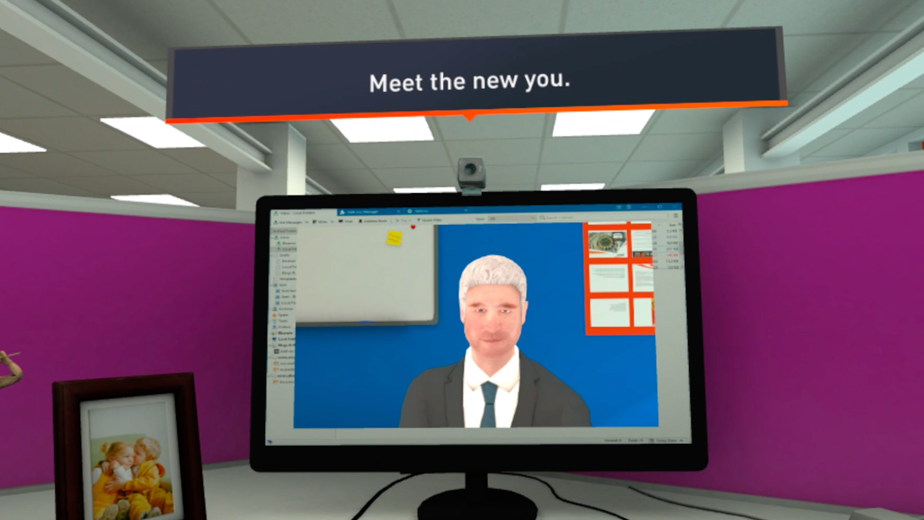
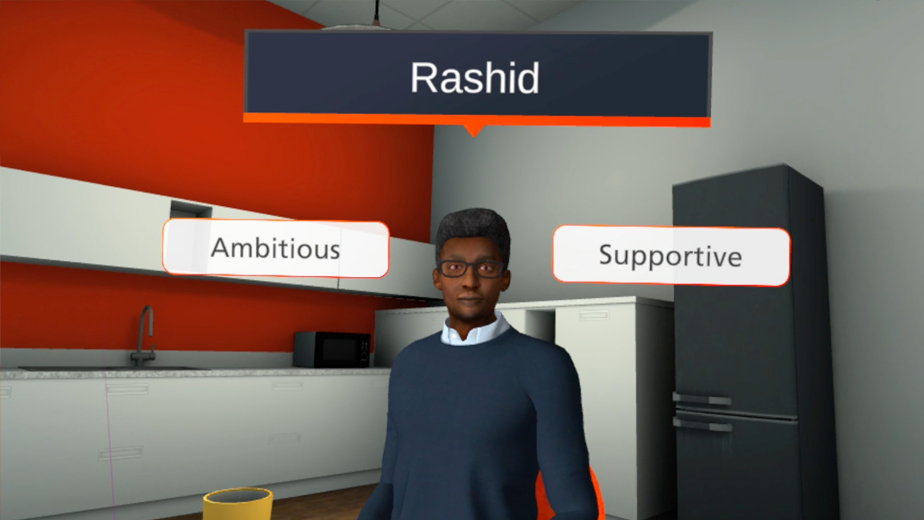
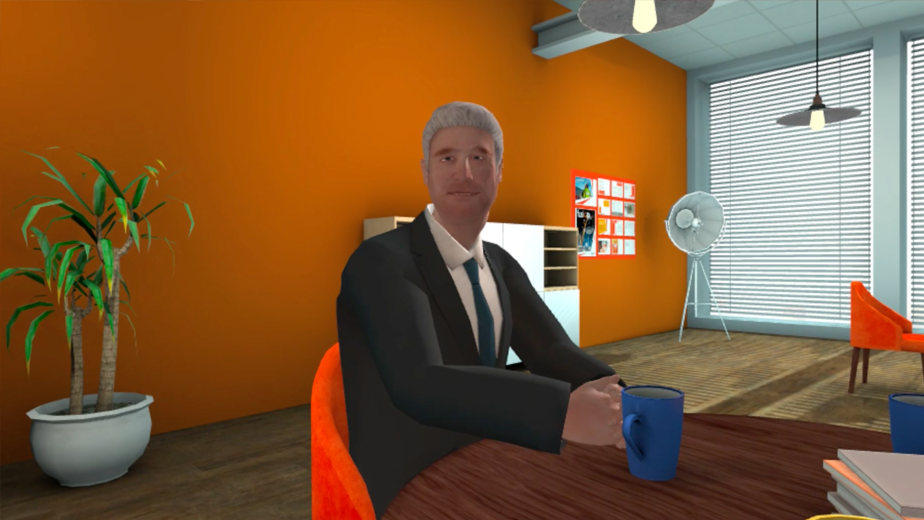
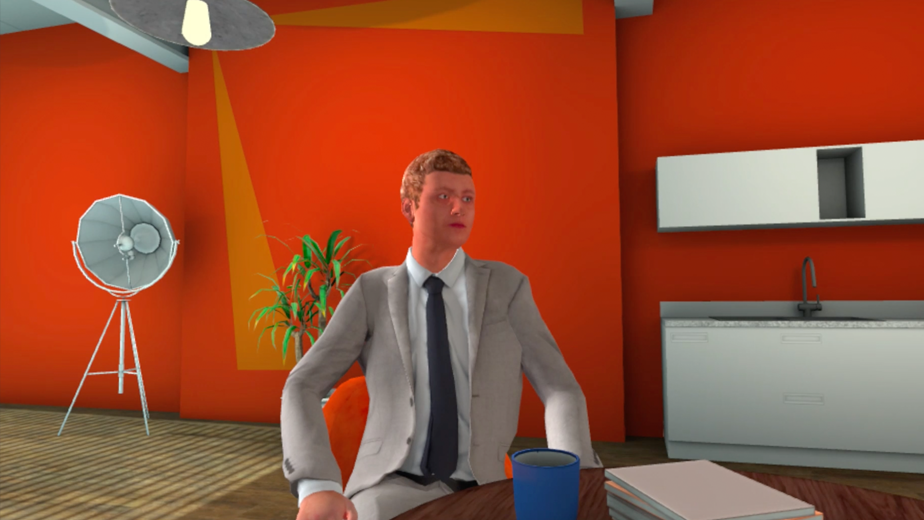
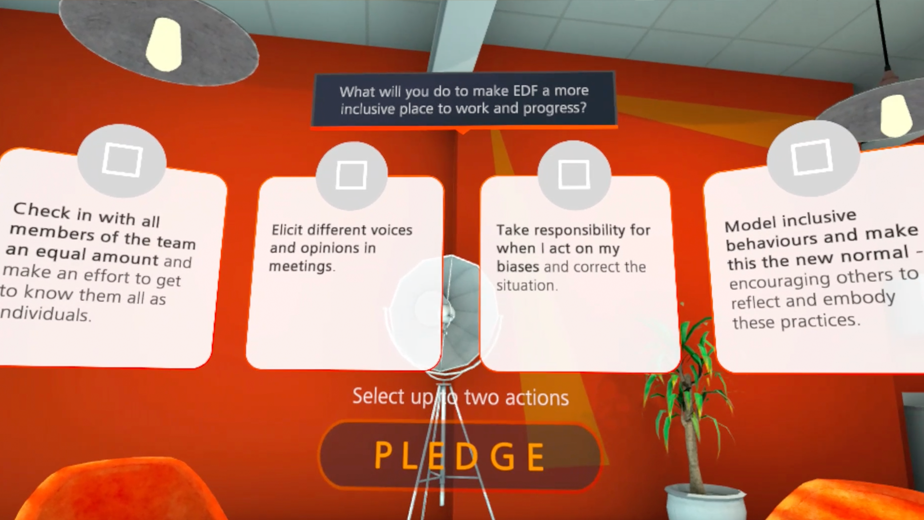
We’re always happy to talk to you about how immersive technologies can engage your employees and customers. If you have a learning objective in mind, or simply want to know more about emerging technologies like VR, AR, or AI, send us a message and we’ll get back to you as soon as we can.